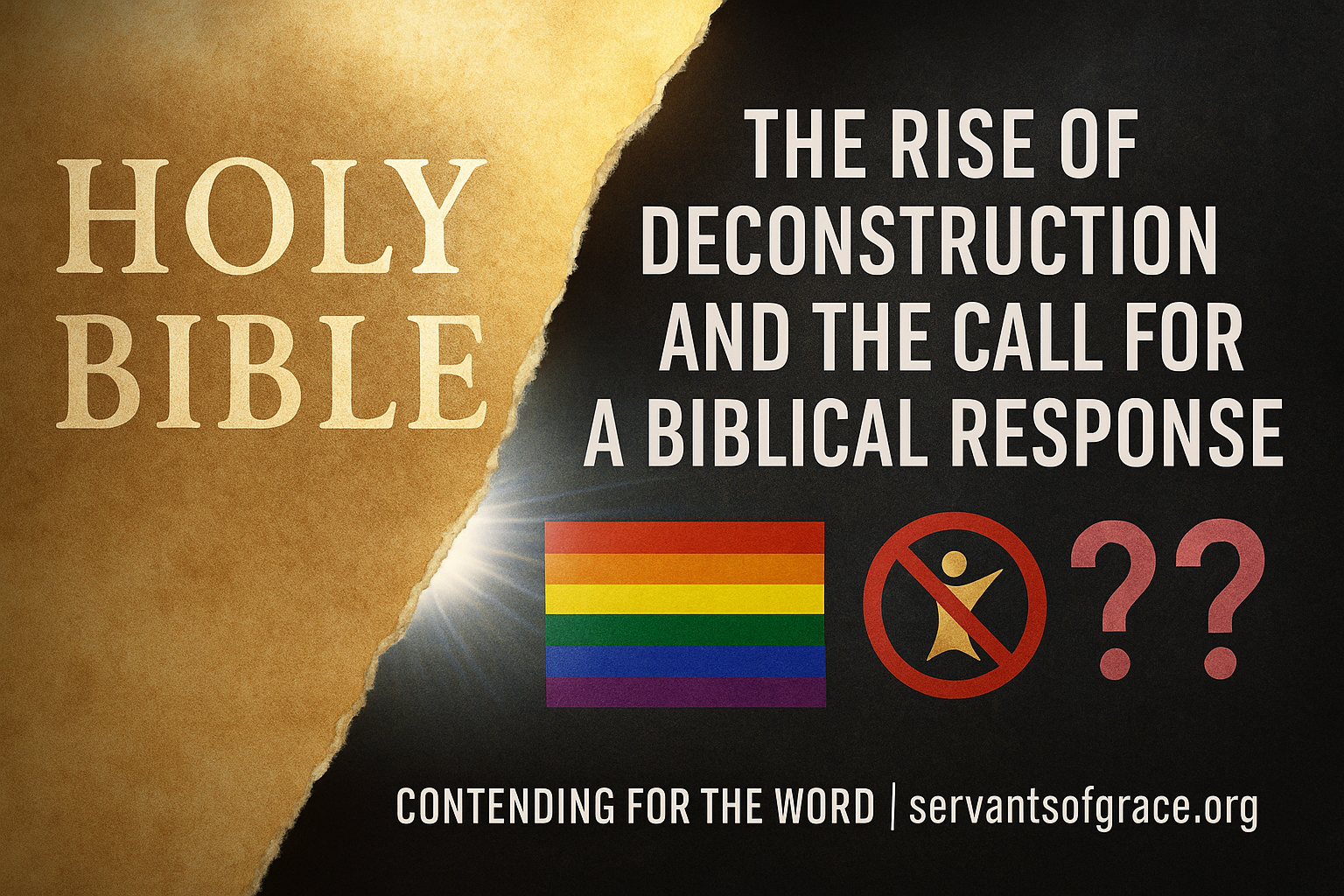⏱️ Estimated Reading Time: 4 min read
The Rise of Deconstruction and the Call for a Biblical Response
In recent years, the term deconstruction has surged in popularity—especially among ex-evangelicals, progressive influencers, and public figures walking away from historic Christianity. It often appears as a badge of courage: an invitation to rethink, reinterpret, or entirely abandon the faith one once claimed.
But beneath the cultural trend lies a deeper spiritual concern. While asking hard questions about faith is not inherently wrong, the process of deconstruction, as it is widely practiced today, often leads away from biblical truth—not toward it.
So what exactly is deconstruction, and how should Christians respond?
What Is Deconstruction?
In modern usage, deconstruction refers to the process of dismantling previously held beliefs to evaluate which parts—if any—are worth keeping. For many, it’s a full-scale breakdown of Christian doctrine, tradition, and authority. Rather than reforming faith according to Scripture, it often results in reshaping it around personal experience, culture, or emotion.
Deconstruction is not inherently intellectual or theological. In practice, it tends to:
- Dismiss or relativize biblical authority
- Redefine sin and salvation
- Center personal autonomy over divine revelation
- Replace gospel clarity with vague spirituality
In short, while the process may start with genuine questions or pain, it often ends in rebellion against God’s truth.
What Fuels the Deconstruction Trend?
The motivations behind deconstruction are varied—and sometimes deeply emotional:
- Church hurt or spiritual abuse
- Disillusionment with Christian leaders or institutions
- Cultural pressure to affirm LGBTQ+ ideologies or progressive causes
- Influence of social media voices and deconstruction-themed podcasts or books
- Desire for autonomy and freedom from biblical moral boundaries
Some of these wounds are real and require compassionate care. But when healing is pursued apart from truth, the result is not restoration—it is spiritual drift.
What Does Scripture Say?
Although the Bible doesn’t use the term deconstruction, it does speak clearly about the danger of departing from the faith:
“Now the Spirit expressly says that in later times some will depart from the faith…” — 1 Timothy 4:1
“We must pay much closer attention to what we have heard, lest we drift away from it.” — Hebrews 2:1
“No one can lay a foundation other than that which is laid, which is Jesus Christ.” — 1 Corinthians 3:11
God’s Word warns against both deliberate rebellion and slow doctrinal erosion. In contrast to tearing down the faith, Christians are called to build on the sure foundation of Christ with gospel truth, doctrinal clarity, and spiritual maturity.
Why Deconstruction Is Spiritually Dangerous
At its core, modern deconstruction is not just a private journey—it is a public reshaping of truth. It undermines the gospel in the following ways:
- Rejects the authority of God’s Word in favor of personal narrative
- Elevates emotion over doctrine
- Redefines biblical categories like sin, grace, salvation, and identity
- Leads to apostasy, with many leaving the faith entirely
What begins as a personal crisis can become a platform for leading others astray. And for some, deconstruction becomes a form of evangelism—calling others to abandon the faith once for all delivered to the saints (Jude 3).
How Should Christians Respond?
Rather than mocking or dismissing those who are deconstructing, Christians must respond with both conviction and compassion.
1. Listen with Compassion
Behind deconstruction stories are often real wounds. We must listen with empathy—without affirming error.
2. Point People Back to the Word
Our foundation is the inspired, sufficient, and inerrant Word of God. True healing and clarity come not from human speculation but from divine revelation.
3. Proclaim the Gospel Boldly
In a world of spiritual confusion, only the gospel of Jesus Christ brings lasting hope and transformation.
4. Pray for Soft Hearts
Only the Holy Spirit can open blind eyes, heal wounded hearts, and draw people back to the truth.
“But as for you, continue in what you have learned and have firmly believed…” — 2 Timothy 3:14
Conclusion: Stand Firm in a Shifting Age
Deconstruction is not a harmless trend. It is a spiritual battlefield—and many are being swept away. As Christians, we must be alert, rooted in God’s Word, and ready to respond to the cultural confusion with grace and truth.
We’re not called to deconstruct the faith. We’re called to contend for it.
Check out Contending for the Word Q&A here at Servants of Grace or more of your questions answered.
Please check out our YouTube.
Dave Jenkins is happily married to his wife, Sarah. He is a writer, editor, and speaker living in beautiful Southern Oregon. Dave is a lover of Christ, His people, the Church, and sound theology. He serves as the Executive Director of Servants of Grace Ministries, the Executive Editor of Theology for Life Magazine, the Host and Producer of Equipping You in Grace Podcast, and is a contributor to and producer of Contending for the Word. He is the author of The Word Explored: The Problem of Biblical Illiteracy and What To Do About It (House to House, 2021), The Word Matters: Defending Biblical Authority Against the Spirit of the Age (G3 Press, 2022), and Contentment: The Journey of a Lifetime (Theology for Life, 2024). You can find him on Facebook, Twitter, Instagram, Youtube, or read his newsletter. Dave loves to spend time with his wife, going to movies, eating at a nice restaurant, or going out for a round of golf with a good friend. He is also a voracious reader, in particular of Reformed theology, and the Puritans. You will often find him when he’s not busy with ministry reading a pile of the latest books from a wide variety of Christian publishers. Dave received his M.A.R. and M.Div through Liberty Baptist Theological Seminary.




